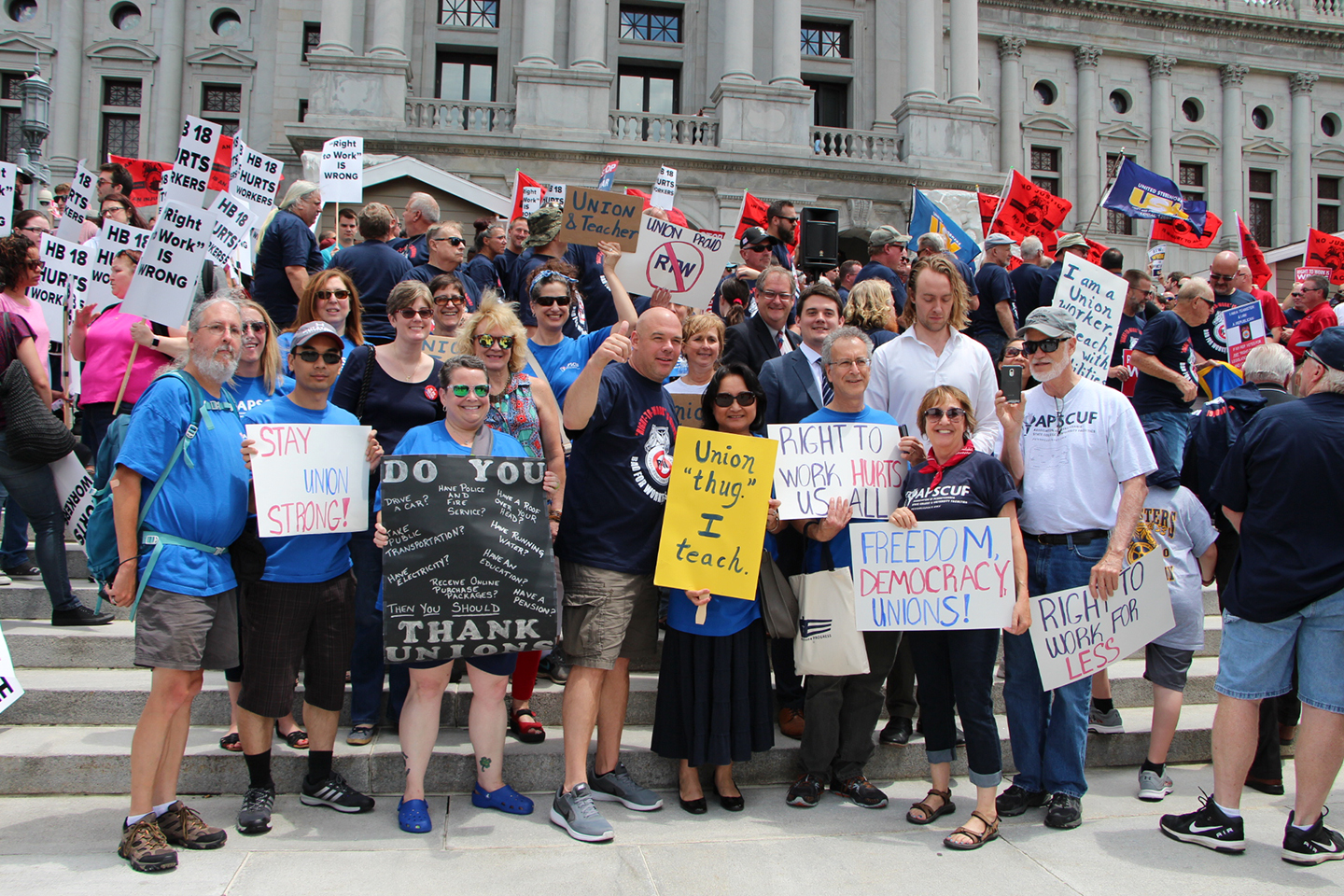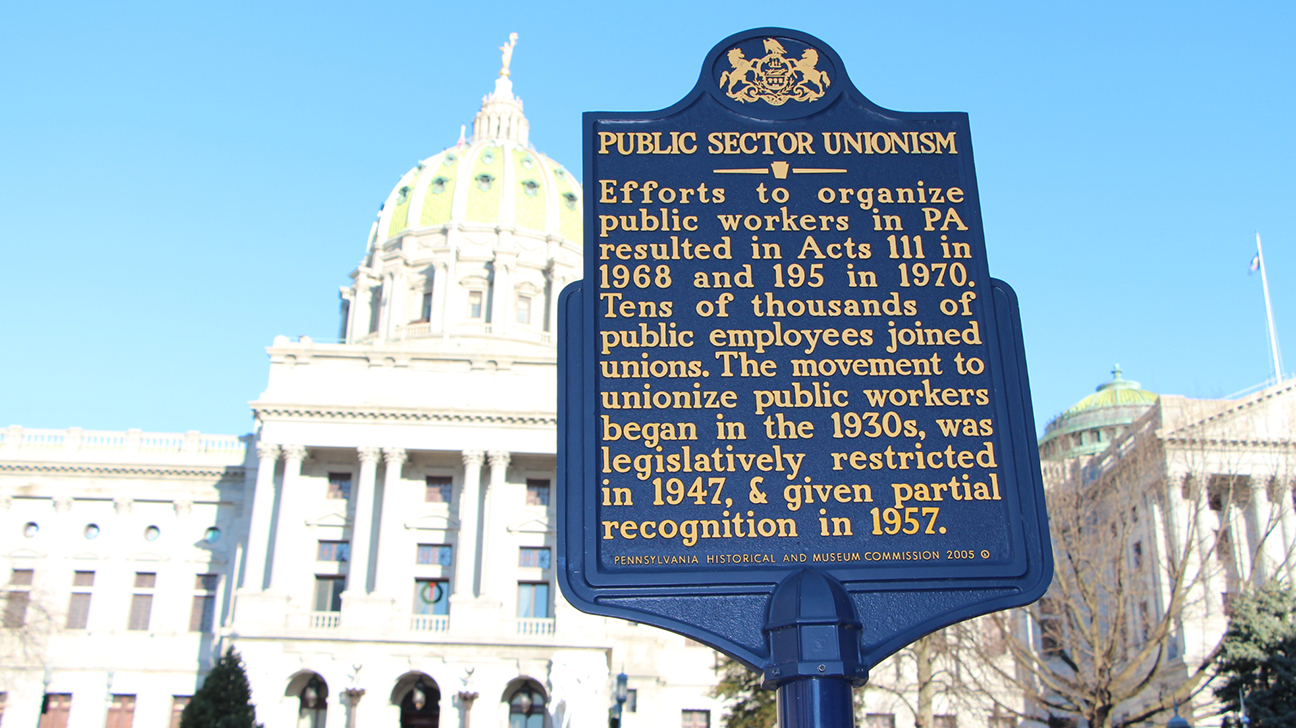Blog
APSCUF life: Service continues during summer ‘break’
Last summer, APSCUF went behind the scenes to show how faculty members and coaches continue to devote themselves to affordable, quality education even when class is not in session. This post is a continuation of that series.
 I’m often told “It must be great being a professor … you get the whole summer off!” Those of us who teach most likely don’t have many colleagues who have the “whole summer” off. Indeed.
I’m often told “It must be great being a professor … you get the whole summer off!” Those of us who teach most likely don’t have many colleagues who have the “whole summer” off. Indeed.
As someone who has taught in higher education for 15+ years, I cannot remember one summer where I was able to spend every day with a cool drink and my feet up, lounging on the patio with nary a care on my mind. And I like it that way. Here’s what summer looks like for this social-work faculty member at Millersville University.
Once the spring semester ends, we enter grades, then a day or so after graduation, those of us who teach summer classes are back in the classroom. In my case, at Millersville University, summer session starts in early May and ends in mid-August. While I don’t carry a teaching load of five classes, as I do in the fall and spring, I teach two social-work courses at the graduate level, and along with them, the attendant grading, discussion, and planning take place. I’m also one of those instructors who, when monitoring and teaching an online class, likes to craft individual responses to each of my students on discussion boards. Time consuming, yes; a great deal of reading, yes; but I hope it enhances and enriches the learning experience for our students. Further, the learning experience is heightened for me, as I absorb a great deal about our students through their posts.
Two courses? Piece o’ cake, right? Sure. But it doesn’t end there. This is my promotion-and-tenure year, so I have to write my P&T application narrative. I have to collate, collect, and search through all of my documents from the past five years. Each day I am not teaching is spent writing and compiling information for the application packet. Remember those days writing your dissertation? Completing the P&T packet is similar to those days, only now I am also teaching, conducting a research study, completing two journal articles, presenting at conferences and working on task forces for the Council on Social Work Education, and meeting with peers to discuss departmental matters and programmatic issues. At least during the summer, I loosen up a bit and allow myself to wear Hawaiian shirts on a more regular basis.
The School of Social Work started a Doctor of Social Work program along with Kutztown University several years ago. So, here at Millersville, we are involved throughout the year with monitoring our advisees’ progress on their comprehensive papers, assisting with their Institutional Review Board applications, and meeting students regularly to provide advice and guidance throughout the DSW process. Did I mention we meet with students throughout the summer as well? BSW, MSW, DSW … our doors are open for all of our students.
Maybe the teaching load is a bit lighter in the summer, but the workload remains constant. That’s a good thing for me because I love what I do, and I love my school and my department. It also helps that I don’t like the beach, but that’s another story. I do have a few more minutes to walk my dog in the morning during the summer, though. Don’t think I am complaining. I’m merely illustrating what all of us in APSCUF do for our departments and schools, and most important, our students. I came to academia late, after spending a number of years in the business world and as a practicing social worker. Fortunately for me, I knew and was well aware that higher education is a calling, and thus there are no 37.5-hour weeks or eight-hour days or summers off. I have found that effective teachers, when they are not teaching, are thinking about teaching.
I appreciate this great profession of ours, and I find myself saying, “I can’t believe I do this for a living now” — even in the summer.
Dr. Marc Felizzi is an assistant professor of social work at Millersville University.
West Chester faculty member begins officer-at-large term on executive council
Cassandra Reyes is no stranger to leadership roles as she takes the reins of one of APSCUF’s faculty officer-at-large positions. Prior, Reyes’ service work has ranged from president of the Northeastern Association of Criminal Justice Sciences to the executive treasurer of the Camden County Fraternal Order of Police Bicentennial 76 Lodge, where she now is vice president.
 Reyes is a professor in West Chester University’s criminal-justice department. This is not her first experience in Pennsylvania’s State System of Higher Education: She received her B.A., M.A., and Ph.D. at Indiana University of Pennsylvania. Between her bachelor’s and master’s degrees, Reyes worked as a New Jersey state probation officer-bilingual and senior parole officer-bilingual for 10 years.
Reyes is a professor in West Chester University’s criminal-justice department. This is not her first experience in Pennsylvania’s State System of Higher Education: She received her B.A., M.A., and Ph.D. at Indiana University of Pennsylvania. Between her bachelor’s and master’s degrees, Reyes worked as a New Jersey state probation officer-bilingual and senior parole officer-bilingual for 10 years.
On top of service roles in graduate school, such as the Student Cooperative Association board of directors, Reyes worked alongside members of APSCUF.
“This background gave me a strong desire to become a faculty officer-at-large member this year, as the timing in regard to my teaching, scholarship, and service was right to run for the position,” Reyes said.
The new faculty officer-at-large member is excited to gain more insight into APSCUF and to get to know the staff, she said.
“I am looking forward to contributing my time, hard work, and dedication to assisting the faculty and staff as much as I can through my role,” she said.
APSCUF’s work is particularly important now due to the climate of public higher education in Pennsylvania, Reyes said.
“It is important for APSCUF to continue fighting for faculties’ rights,” she said.
Despite her busy schedule and continuous dedication to teaching, scholarship, and leadership roles, Reyes said she always makes time for her husband, cats, and dog.
—Lindsey Newton,
APSCUF intern
• Vote as and are members of the executive council
• Act as tellers during the election of the nominations and elections committee if incumbents are running for re-election
• Serve with the president as the personnel committee
APSCUF stands up for workers at anti-“right-to-work” rally

APSCUF members and State APSCUF staff joined the Pennsylvania Conference of Teamsters, other unions, Gov. Tom Wolf, and legislators Tuesday, June 20, on the Capitol steps in Harrisburg. They protested the so-called “right-to-work” bills that have been introduced in this legislative session. Click here to view additional photos from the event on APSCUF’s Facebook page.
Read Dr. Kenneth M. Mash’s testimony to the Pennsylvania House Democratic Policy Committee on College Affordability

Testimony of Dr. Kenneth M. Mash
President, Association of Pennsylvania State College and University Faculties (APSCUF)
Before the Pennsylvania House Democratic Policy Committee on College Affordability in the Commonwealth of Pennsylvania
House Democratic Caucus Room, Rm. 418 Main Capitol, Harrisburg, PA
Monday, June 19
Chairman Sturla and members of the House Democratic Policy Committee, on behalf of the about 5,500 faculty and coaches represented by the Association of Pennsylvania State College and University Faculties (APSCUF), thank you for inviting me to testify at this important hearing to discuss the pressing issues of access to and the affordability of public higher education in Pennsylvania.
A disturbing and inaccurate narrative has emerged in the recent public discourse concerning Pennsylvania’s State System of Higher Education. It is a narrative that suggests our universities, like corporations, are “failing” because they are struggling with their finances. But our universities are not corporations. They are Pennsylvania’s publicly owned universities, and the State System’s founding statute, Act 188 of 1982, was unequivocal in laying out its mission. The law states: “The State System of Higher Education shall be part of the Commonwealth’s system of higher education. Its purpose shall be to provide the highest quality education at the lowest possible cost.”
The spirit behind this charge was that our universities would be the engines of opportunity for the working-class people of the Commonwealth. Our universities were meant to be the vehicles that provide the opportunities for families to secure the American Dream. One of the reports recently released by the Pennsylvania Budget and Policy Center demonstrates that our universities continue to do just that: Our universities do a much better job of lifting students whose family incomes were in the bottom 60 percent and moving them to the top 40 percent than do the Commonwealth’s elite universities.
Disturbingly, however, that same report indicates that our universities are now educating 15 percent fewer students from the bottom 60 percent than they were a few years ago. The cost to attend our universities has soared in recent years, with total costs rising from one-fifth of median family income to over one-third since 2000. Tuition and fees have risen substantially — and some of our universities have implemented per-credit tuition models that could potentially increase tuition by 25–50 percent. In real dollar terms, housing costs have increased 50 percent in the last few years.
In 2012, the State System commissioned a report from Maguire Associates to examine the elasticity of tuition at the state-owned universities; In other words, how would enrollment be impacted by increases in college costs? Among other things, the report found that an increase of more than $3,000 in total college costs would lead to drastic reductions in enrollment. Moreover, the effects would be felt the worst at six of the most cost-sensitive universities: Cheyney University, Mansfield University, Clarion University, Edinboro University, Lock Haven University, and California University. It is not a coincidence that, years later and after increases exceeding $3,000, five of those six universities are considering faculty layoffs and program cutbacks. They also happen to be those universities that cater the most to students from the bottom 60 percent.
When we discuss cost increases and enrollment drops, we are talking about more than numbers in a column. We are discussing the futures of our neighbors — and the fate of our Commonwealth. Should working-class families be forced to choose — if it is available — to have their children take on the type of massive debt that leads to paying the bank rather than buying homes, cars, and other things those of us who went to college during an earlier era took for granted?
Is it truly acceptable for an increasing number of students to be forced to make the awful decision between choosing food or books? There are now food pantries on several of our campuses. Do we really find it acceptable that an increasing number of high school graduates will just give up on a college education and believe they will be excluded from the American Dream?
Study after study continues to conclude that a college degree is still worth it — even if one only thinks about a college degree solely in terms of potential lifetime earnings. (We, of course, believe that the benefits of college education go vastly beyond income.) But the steepness of total college costs ranging from $23,000 to $25,000 per year certainly depends on where you are on the economic scale.
We appreciate Governor Wolf’s requested 2 percent funding increase for the State System and the legislature’s seeming assent. It is a good place to start; but that increase will only take funding to 1999 levels.
Pennsylvania is at a real crossroads: Do we want to join those states trying to seriously confront the issue of college costs and committing to the future a well-educated workforce provides brings, or do we wish to fall even farther down the list of states that have neglected public higher education? We don’t have much farther to fall: We’re already 47th out of 50 states in terms of per-student allocation support for our public colleges and universities.
A high-quality education at an affordable cost must amount to more than a few words on a piece of paper. When costs grow and opportunities at our universities close down, we put the Commonwealth at risk. Chairman Sturla and members of the committee, our universities are not failing. We are all failing a generation by depriving them of what has benefitted their predecessors.
On behalf of not only our faculty and coaches, but also our students and future generations of Pennsylvanians working to achieve the American Dream through a college education and those generations yet to come, we thank you for your attention to this crucial issue.
Stand up for our rights next week
 The PA Conference of Teamsters is hosting a rally Tuesday, June 20, on the Capitol steps in Harrisburg to protest the so-called “Right-to-Work” bills that have been introduced in this legislative session.
The PA Conference of Teamsters is hosting a rally Tuesday, June 20, on the Capitol steps in Harrisburg to protest the so-called “Right-to-Work” bills that have been introduced in this legislative session.
APSCUF is planning to attend the rally, and we are asking for as many members as possible to join us. We will meet 12:30 p.m. Tuesday, June 20, at the front door of the APSCUF building (319 N. Front St.) and head up to the Capitol together for the 1 p.m. rally.
You can R.S.V.P. to the event and learn more by clicking here. Please also ">email Josh Grubbs at to let us know you are coming.
Thank you, and we hope to see you next week.